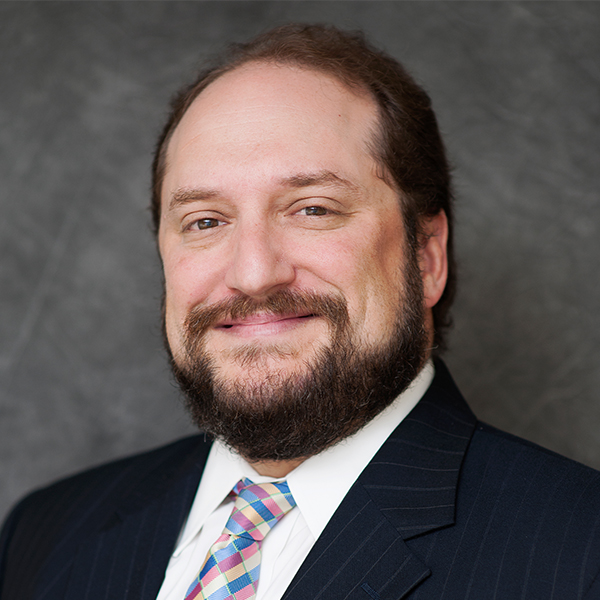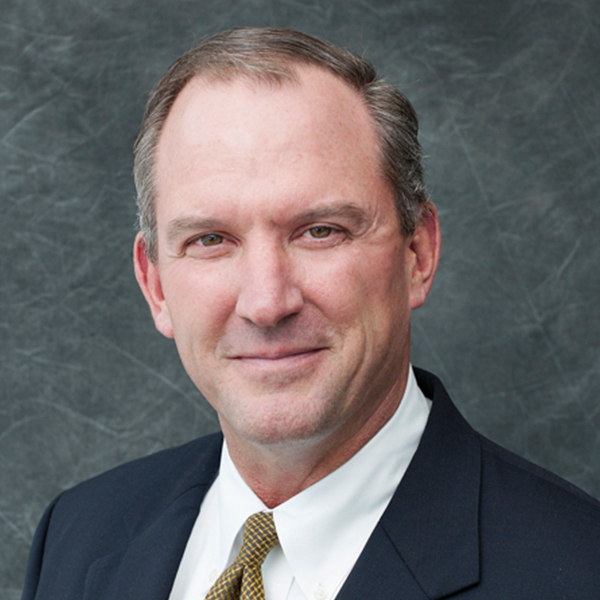Angela Shah
Hello, and welcome to the PracticeLab podcast, where we talk to top advisors about what makes them successful, so that you can apply those lessons in your own business.
I'm your host, Angela Shah, and this is part two of our conversation with Jonathan Freeman and Brian McCarver, founders of Stonebridge Financial Group in central Pennsylvania. As we learned in part one, Jonathan and Brian lead a team of 19 associates with assets of around $1.3 billion.
Now, in this episode, you'll hear them talk about how they’ve built a corporate retirement plan business and how that business has helped expand the roster of the firm’s wealth management clients. They’ll also speak about why they created an advisory board, and how having one has helped shaped the way they’ve built their practice.
Angela Shah
So, I’d like to start with having you talk about your corporate retirement plan business, which has become important to your practice. Why did focusing on that particular business make sense for you to pursue?
Jonathan Freeman
We do have a team solely dedicated to the corporate retirement plan space. So I do believe that the average advisor may only have one or two corporate plans. We have about 120, 130. I guess one thing that really is unique about our practice is the crossover between the corporate consulting and wealth management. In other words, we really do work together as a practice. Our advisors or financial planners do help the corporate team with doing planning and providing advice to business owners, the executives, at the offices, and even really, anybody over the age of say, 55, who might be closing in on retirement, get actively involved as a team in servicing and educating plan participants. It does lead to a lot of opportunities for our financial advisors who are not relying solely on the 401(k) side of the business.
So it's really, I would say, we go above and beyond with our educational process for 401(k) plans. And, of course, we also do some pension plans as well. On the wealth management side, I mean, I would say that we of course have some unique approaches to investments. We do manage a lot of assets in-house, on that side of our business. And we do have some unique strategies that we work with.
Angela Shah
How does working with companies on retirement plans compare to or complement, say, the rest of your practice?
Brian McCarver
Yeah, the retirement plan business is a lot more process driven. It's less emotional, it's a, “Hey, we're making these decisions because of these 10 criteria. This one works, those don't. Hire us, fire them,” whatever. It's value-based in terms of the ideas and everything you're delivering to the end user, which is either the participant or the plan committee or the fiduciary. But it's less emotional and more sort of like matter of fact, like, “Hey, we do a good job, we charge a reasonable fee. And here's 20 other people you can talk to that you know that we can do it.” And there is some overlap between the, not direct but some overlap, between the retirement plan and retail world.
Largely speaking, if you're dealing with successful businesses, and business owners end up selling or something happens, then you'll end up in a in a position where you can talk to the business owners. But it is something that you can't half do. If you're going to do it, you need to commit to doing it. And you need to either be committed in your time to do it, or have a specialist on your team do it. But it is involved in the process and getting it done in the sales in the following up in the contact with the participants.
We do offer basically every single plan, the opportunity for us to meet one-on-one with participants. It's not, by any stretch of the imagination, planning. It's more just financial sort of triage, like “Hey, consider this, do that, pay off this debt, think about these things, you got to save and get your match.” I mean, it's simple topics that we end up conveying to people. But the way that the benefits work and the way the average person is approached about saving for retirement, it's almost 100% through retirement plan. So if you end up capturing a relationship in that context, they continue for a long period of time. If we keep our retirement plan clients satisfied and happy and charge a reasonable fee, they have the potential at some point down the road to become wealth management clients. We don't aggressively do that, but it just naturally happens because of the consequences of the relationship you established over the years of giving-one-on one advice.
Angela Shah
They have additional needs, they will naturally perhaps come to you because there is an existing relationship.
Brian McCarver
Yeah, we're in a little bit of a unique position, because we actually serve as a direct fiduciary on the plan. We can offer a little bit more advice than education. So the point is, is that's not necessarily available for all people who service retirement plans, but it puts us in a unique position to help people with just simple everyday stuff. And that lasts, eventually lasts into relationships that turn into retiring people that want to work with us.
Jonathan Freeman
You know, all I can say about the corporate retirement plan business is, like the rest of the industry, it's morphed over the years. There's probably fewer groups doing it than there used to be. This is hard to believe, even to me, but selling retirement plans to all be transactional, people will get paid up front, and then the employer would be left to figure out what to do. And you know, it's amazing, the regulations involving, you know, ERISA plans. It's incredible that that was ever taking place. That made it much easier for us to bring in new business back then because there are some plans being overcharged and improperly managed. But you know, it's not a high-margin business, it is something where you really need to focus on efficiencies. We're still doing that.
If you're managing an advisory account for 300 clients that's different for every client, you're not going to do a very good job doing that. So, you know, we started developing model, portfolio models. We spent a lot of time doing research and analytics for our 401(k) plan business and essentially said, “Hey, you know, let's make sure that we have a model portfolio in the 401(k) plan side as well.” And those efficiencies help your practice, but they also help the clients. If you're trying to manage 300 unique allocations, or completely unique allocations, with 1,500 different investment options, you're not going to do a very good job.
I mean, eventually, we'd like to have a portal for plan participants with educational materials. I mean, we're working on all sorts of things to make that area of the practice easier for communications to larger groups. Again, we’re not pressuring participants to work with us. But it does lead to an enormous amount of ancillary business from business owners selling their businesses. If we have several thousand participants, there's a lot of inheritances and things like that, where we might be the only [advisors they] have ever spoken to. So if you look at the composition of our retail book of business right now, there's a tremendous amount of business that was derived from the corporate business.
Angela Shah
And what do you think has driven that business’s success? Any tips for others who are interested in that line of business? What would you recommend to them?
Brian McCarver
Actually, I'll joke and say it's been so successful, I have no tips for anybody else, because we want to keep growing our business. Just kidding!
So it really started from working from our retail book out, and we contacted business owners that, “Hey, we have an expertise in doing retirement plans, we should probably be talking to you about yours.” And that led to more and more retirement plans that we were servicing inside of the group, which led us to hire somebody dedicated to actually doing it.
Angela Shah
One topic I wanted to ask you about is your advisory board. How and why did you decide to form one, and how has the board helped shape your firm’s operations over time?
Brian McCarver
Our advisory board is made up of a vast number of different professionals. It's held less formally and less often; it's every six months. But just presenting ideas and information and where our business stands to other business owners in that format. It wasn't a formal coach-training type scenario, but we were moving in a direction where we just wanted outside opinion.
In fact, probably the most noticeable takeaway from either our first or second advisory board meeting is we changed the name of our company. So that was a telltale or long-lasting change that occurred, which it was based in some ideas that were actually material and important at the time to get us disconnected from the firm that we were associated with, and more connected on being independent. And John and I also decided to remove the surnames at the front of the business name and move it into a group name because, in fact, it was building out to be a group, and it wasn't two individuals doing the doing the work anymore. So it used to be McCarver Freeman, whatever. Now it's Stonebridge Financial Group.
That has, I think, been a very positive outcome from the board along with other suggestions and ideas, branding, we opened an office in Lancaster, we asked for their opinions and feedback about what we should be doing in that marketplace to help sort of spread our name and brand ourselves in that marketplace.
Angela Shah
How did you decide the types of people you wanted on the advisory board? Was the makeup of the board deliberate?
Jonathan Freeman
It actually started just as a corporate retirement plan advisory board, and it sort of morphed into just we want advice from you on, on absolutely everything. And I will say that part of it is also our effort to become very close with some great centers of influence. We always have COIs on the advisory board; we like to have business owners on the advisory board. And, you know, they've really given us advice on a number of things.
Just as an example, we talked about the marketing person that we hired, and in the frequency of [the communication] we're doing. I can say that before the advisory board, it was infrequent. We would communicate (but it would not be in an organized fashion) and really strongly encouraged by the advisory board to, you know, create that marketing and branding and communication platform.
And that wraps up part two of our conversation with Stonebridge Financial Group. Be sure to tune into part one, where we talk about how Jonathan and Brian manage their team for success, how they leverage centers of influence to create a robust client referral pipeline, and why spending resources on marketing helped them fuel organic and sustainable growth. I want to thank my guests, Jonathan Freeman and Brian McCarver, for joining me.
Thanks also to my colleague Lesley Reinhart at Capital Group for connecting me to Stonebridge.
If you liked what you heard today, hit the subscribe button and consider leaving a rating and a review, because that helps other advisors discover this show.
PracticeLab is brought to you by Capital Group. You can find all these episodes and more at practicelab.com. I hope you enjoyed what you heard today, and I look forward to joining you on the next PracticeLab podcast.



